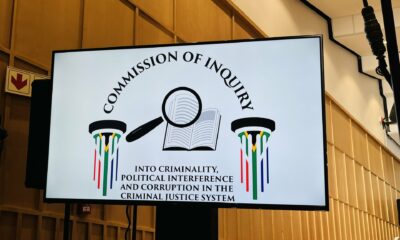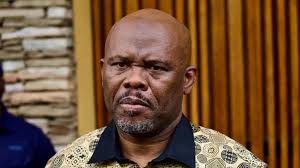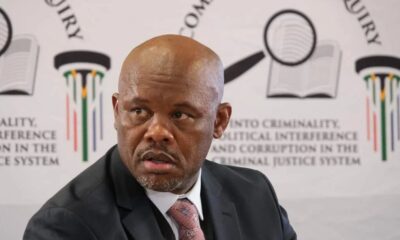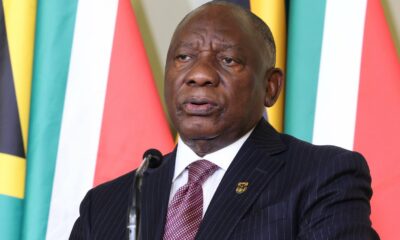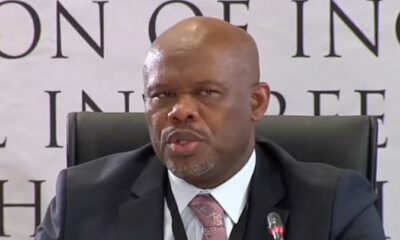News
“Stay in Your Lane,” Police Minister Warned Amid Political Killings Task Team Row
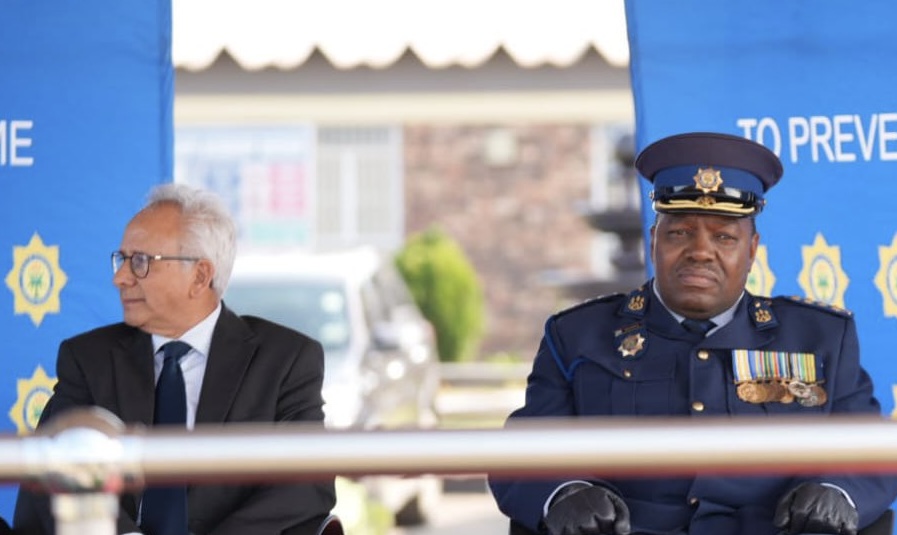
A battle over dockets and authority
The leadership of South Africa’s police service has been thrown into fresh turmoil over who should handle 121 politically sensitive murder dockets. National Commissioner Fannie Masemola recently confirmed that these cases would be returned to the KwaZulu-Natal Political Killings Task Team, which had previously been sidelined. The move came after years of allegations that political meddling was hampering justice in one of the country’s most violence-scarred provinces.
Acting Police Minister Firoz Cachalia expressed unease, saying he had not been consulted before Masemola’s announcement and that the dockets should perhaps wait until the newly created Madlanga Commission could investigate the task team’s operations. His comments quickly sparked warnings that he was overstepping his role.
The commission versus the police
Former Western Cape commissioner Dr Lennit Max was blunt in his response. He argued that the Madlanga Commission’s purpose is to probe interference and corruption within the criminal justice system, not to decide which detectives investigate which cases. In his view, police must carry on with their constitutional duty while the commission examines whether political interference occurred.
Max pointed out that Masemola had publicly pledged to safeguard the files by making copies, ensuring they would not vanish. He suggested the minister might be misinterpreting the commission’s role, adding that attempts to delay investigations could be seen as interference themselves.
Political voices enter the fray
The Economic Freedom Fighters (EFF) also weighed in, saying that a commission cannot replace police investigations. In their words, holding back dockets would give “reprieve to assassins, delay justice for victims and their families, and undermine the very purpose of the SAPS.” The party’s statement tapped into a wider frustration felt in KwaZulu-Natal, where political killings have long fuelled public distrust of both police and politicians.
A leadership feud spilling into public view
The crisis is further complicated by the simmering feud between Masemola and his deputy, Crime Detection boss Shadrack Sibiya. Sibiya, accused of playing a role in removing the dockets to Pretoria, has denied any wrongdoing and is now challenging Masemola in court over being placed on special leave. Masemola has gone further, serving him with a notice of intended suspension.
Max warned that this internal squabble at the very top of the SAPS is eroding discipline and morale in the ranks. Officers, already stretched thin, are watching their leaders fight battles in court instead of focusing on service delivery.
Why it matters now
At the heart of the dispute is not just paperwork, but trust. Families of slain councillors and activists in KwaZulu-Natal have waited years for justice. Each delay deepens wounds and fuels cynicism. For a country still scarred by political assassinations, the return of the dockets is more than a bureaucratic decision. It is a test of whether the SAPS can insulate itself from political tug-of-war and deliver justice without fear or favour.
As the commission prepares to start its work, South Africans will be watching closely to see if the police minister heeds the warnings to “stay in his lane” and allows investigators to do theirs.
Also read: Why Taiwan’s Office Leaving Pretoria for Joburg Matters in 2025
Follow Joburg ETC on Facebook, Twitter, TikT
For more News in Johannesburg, visit joburgetc.com
Source: IOL
Featured Image: Central News

